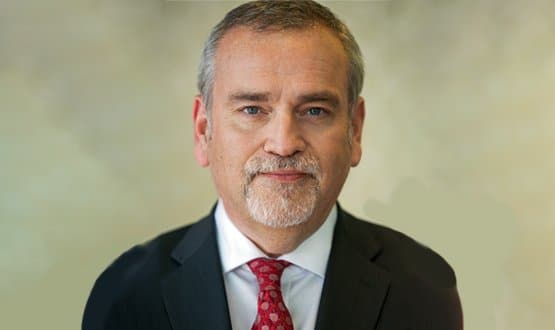Data analytics can boost mental healthcare – trust CEO
- 22 June 2017

Data analytics will be crucial to improving the delivery of mental healthcare and demonstrating the need for investment in it, a trust chief executive has argued.
Speaking at the recent NHS Confederation conference, Joe Rafferty of Mersey Care NHS Foundation Trust said: “The digital opportunity is about us grabbing data to really make a case to the government that mental health services absolutely need the investment that we all know they need.”
He also argued better use of data could support transformation of service provision, and said it was an area his trust was already exploring. “We see no option but to engage in the digital revolution as a way to fundamentally do things differently.
“By using [a] data analytics approach we have already started to pick some really interesting signals out of what otherwise would have been noise.”
Rafferty said his organisation has access to a wealth of data and knowledge, but posed the question: “What does it all mean and how is it crucial to understanding the next steps?”
“We know that we collect huge amounts of data and we do not convert those into the knowledge and intelligence we need to.”

Also speaking at the conference was Caroline Gadd, director at Otsuka Health Solutions, who is working with the trust on data analytics.
“We had a think about what goes into electronic records and used this data to deliver insight that might help clinical decision-making in the front-line and strategic decision-making in the boardroom”, Gadd said.
“We started to use these to develop a risk stratification approach… across the whole secondary care service.”
Risk stratification involves identifying and predicting which patients are at high risk, or likely to be at high risk, of a particular condition or outcome.
“We started to structure the information in a way that helps us understand a risk that somebody might relapse, so a risk someone might have to access hospital services or community crises services.”
“And we’ve structured it to say ‘are they the highest risk or lowest risk people’ and what resources are available to them to ensure they get the best possible care.
“At a strategic level, it helps us target our resources to better manage these high risk people… increasing flow of services”.
Currently the seven mental health digital exemplars, including Mersey Care, are yet to receive the promised £5 million each of central funding – part of the £4.2 billion ‘Paperless 2020′ pot.
Rafferty said the trust is in the process of working with NHS Digital to understand the funding formula and the flow of funds. However, he confirmed to Digital Health News that no projects have been stalled as a result of not having yet received the funding.
“The opportunity as a GDE to avail [ourselves of] some additional funding will certainly speed the digitisation of our services.”




